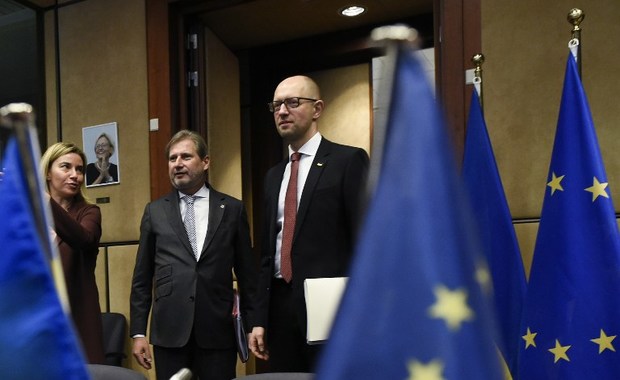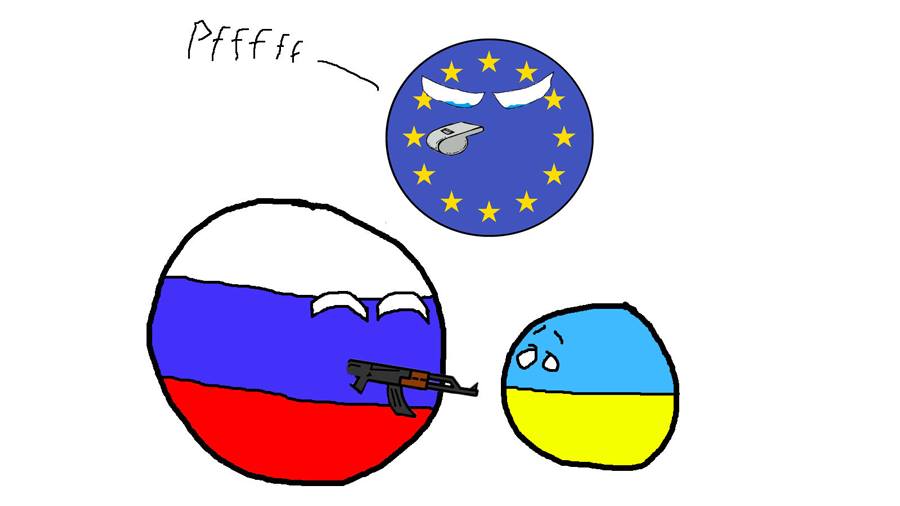Johannes Hahn’s statement after meeting with Arsenii Yatseniuk on 7 December 2015 seemed like a very firm reassurance to the EU-Ukraine visa liberalization future success. EU Neighborhood Policy Commissioner, speaking to media after talks with Ukraine’s prime minister, said he was “pretty sure we’ll have a very positive report (by the EU commission).”

Even though the European official didn’t rush with predictions for the final outcome and reminded about the “top priority” of fighting corruption, Ukraine’s Yatseniuk stated that “Ukraine has accomplished all the tasks required for a visa-free regime to be launched.” The “European dream” that reflects aspirations of so many Ukrainians was expected to come true on 15 December 2015, when the final report of the European Commission on visa liberalization was to be made.
Putin Admits Lying over Russian Military Involvement in Ukraine Talks Ransom Language… https://t.co/PUhR65hZcg
— MaidanOnline (@MaidanOnline) December 17, 2015
Two days later, on 9 December, Europe failed to take a stand on extension of the economic sanctions against Russia for the next 6 months. Even though the EU Council officials have already drafted the legal act and the vast majority of foreign ministers of the EU countries were ready to support the sanctions’ renewal, Italy said “No” and called for a broader discussion.
The sanctions are supposed to stay in place until Russia fulfills the Minsk Agreements. According to NATO and UN reports, “Russia has not withdrawn its troops or its equipment” and “There remains… an inflow of ammunition, weaponry, and fighters from the Russian Federation into the territories controlled by the armed groups, leaving the situation highly flammable.” Yet, the decision-making was postponed, and it didn’t happen even when the bloc’s foreign ministers met on 14-15 December or during another meeting of the EU envoys to Brussels before the summit.
[youtube https://www.youtube.com/watch?v=9OBiBl3pn64]More worrisome news came from Europe on the same day regarding the visa free regime. The release of reports on the implementation of visa liberalization action plans by Georgia and Ukraine has been postponed with no new date set.
Ukrainian Foreign Ministry’s spokesperson Mariana Betsa said that the European Commission will settle the date for publishing a report on a visa free regime for Ukraine after the completion of corresponding internal procedures. EU’s Federica Mogherini said that “the work is still going on” in the European Commission and the reports will be out “this month, in the coming days.” Georgia’s ambassador to the EU Natalie Sabanadze said the release of the reports was delayed because of Ukraine.
Read more: Michal Boni: Europe is not ready for war with Putin
The debate on extending sanctions against Russia will take place during the Summit of the European Council on 17-18 December.
“This will be the direct consequence of the March European Council conclusion, according to which the duration of the restrictive measures against the Russian Federation should be clearly linked to the complete implementation of the Minsk agreements,” European Council’s president wrote in an official invitation to the members of the summit. The Belgian, Lithuanian, and Swedish foreign ministers have publicly backed the extension of sanctions. Besides, the Polish foreign minister said he was “surprised” by Italy’s initiative to discuss the issue of sanctions.
Italy’s prime minister Matteo Renzi had publicly condemned anti-Russia sanctions, yet on the eve of the crucial decision Italy reassured about its support to this economic measure. Paolo Gentiloni, the foreign minister, told press after a ministers’ meeting in Brussels on Monday: “The roll-over of the sanctions will be taken on the basis of Minsk implementation, and this is what will happen,” Euobserver reports.
According to the President of the Council European Union Jean Asselborn, the sanctions can be lifted at any moment. “If we prolong them for six months, it doesn’t mean they’ll stay in place for six months. They can be lifted at any moment by a unanimous decision,” he said.
The date for the European Commission’s report on visa liberalization hasn’t been set, but the officials expect it to be positive anyway. Citing a diplomatic source in Brussels, the German newspaper Die Welt reported last week that the report will be positive and visa-free travel rules may be granted to Georgia and Ukraine by mid-2016. In the case of Ukraine, the European Commission is expected to point out the areas in which Kyiv needs to take action. Unsurprisingly, it will consider the fight against corruption.





![Linas Linkevicius: A [Russian] T-90 tank in Ukraine isn’t just a "vehicle". A lie is not an alternative point of view. Propaganda is not a legitimate form of public diplomacy. (Image: eu2013.lt)](https://euromaidanpress.com/wp-content/uploads/2015/09/b1b0ccb037ba242a8e825f211c3517ea-800x2.jpg)


